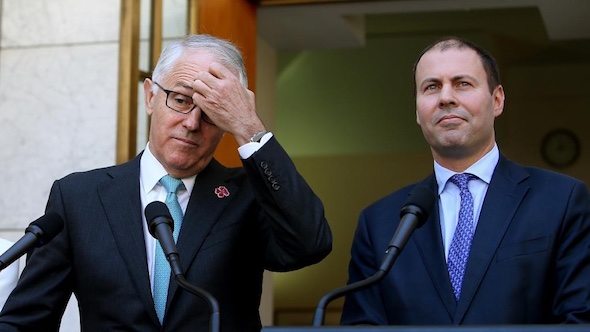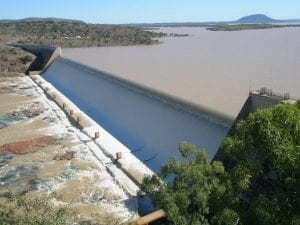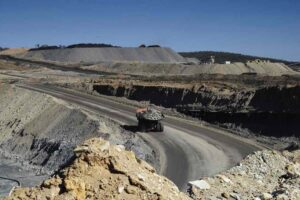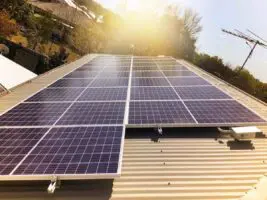Bullying, cronyism and Captain’s picks instead of policy
There is almost universal agreement that carbon policy is or should be a Federal issue.
That is clearly something that the Federal Government should be involved in as it involves Australia’s international status and obligations. But that is the one area that the Federal Government is not touching.
Despite Finkel, despite our COP 21 obligations, the Federal Government does nothing. No electricity policy, no vehicle emission standards, no policy in other areas of the economy responsible for half of Australia’s emissions.
Gross misuse of AEMO report for political purposes
Perhaps the very worst thing, of the many to choose from, about the Liddell negotiation is the gross misuse of the AEMO report. This is only possible because the media is too busy, to put it kindly, to do its homework.
The definition of a “problem” is when forecast “Unserved Energy (blackouts)” exceeds the desired reliability standard. That is not the whole story, but if you want one metric, it’s that.
Unfortunately, AEMO didn’t draw its graph relating to NSW all that clearly. We have attempted to do better, using the .xls data that AEMO provides. AEMO does not forecast a problem and if more renewables are built, the standard will be easily met.

Liddell move emboldens the pro coal, pro socialization, anti private enterprise groups – i.e. the National party and right of the Liberals
Turnbull’s naked interference, partly symbolic, has emboldened the anti-climate change cheer lobby. Examples include:
Over the weekend we saw The National Party has passed a motion that is essentially anti a Clean Energy Target.
In NSW energy minister Don Harwin’s public statements about the need for more renewables, see this article and the NSW Government’s “aspirational” zero carbon policy by 2050 have been shown up in their true light by Premier Gladys Berijiklian’s statement that NSW is “not ruling out a new coal fired power station”
“Asked if the state government will pay to keep Liddell open beyond 2022, Mr Berejiklian said: “We’ve not come to any conclusions regarding that. Obviously we are interested in the federal government’s announcements.”
Ms Berejiklian lashed South Australia for going rogue and piling into renewables, despite their inability to cope with peak demands.
A third option, which many believe is the only viable alternative, is for NSW to build its own new coal-fired power station.
“I’m not going to rule it out,” the Premier said yesterday.” Source: Daily Telegraph, Sep 10
Interference in the market using Federal money instead of policy development
Despite the virtually universal endorsement of the “Finkel Report”, despite the electricity industry, including the large coal generators, and also the growing band of renewable investors and consumers, in coalition with many but not all energy consumers the Federal Govt has been unable to progress industry policy in a way that provides an investment confidence.
It has been unable to form policy consistent with our international obligations.
So what is the alternative? It’s to be populist and interfere in the market – similar to say Venezuala’s recent policy developments – or as if Turnbull had Russian Presidential powers.
It’s not as if Turnbull has a great record on micro managing public investment, you can find plenty of critics of the NBN for instance. Let’s look at some of the “Captain’s picks” that are just announced on the floor of parliament as “done deals”
Snowy 2.0: $8-$10 billion
The Federal Govt’s only historic investment in electricity was its 13% investment in Snowy Hydro. Now in order to subsidize a minimum $2 bn, and likely more, investment in pumped hydro, the Federal Govt is proposing to spend $5bn-$6bn buying the NSW Govt and Vic Govt out of Snowy.
The Federal Govt has no experience in electricity generation. Snowy is also the 4th largest retailer by customer numbers and the Federal Govt has no experience in electricity retailing.
The pumped hydro project has not gone through any competitive process for funding in the way that say CSP or nearly anything has to.
Our studies of pumped hydro show that it needs about $90 MWh differential between peak and offpeak to be profitable. How can anyone really know whether that will be on offer when this plant is built?
No private sector operator would do it now. This purchase and the subsequent investment should be open to far more public scrutiny. At least $2 bn of transmission will be needed to support the investment.
However, as large as that investment is, and as risky as it is, a case can be made that in a world of high renewables where there was lots of zero marginal cost PV in the middle of the day a pumped hydro investment could be of use.
We are not in that world today and there is no plan to get to that world in the future. Pumped hydro, like batteries, consume about 25% more electricity than they produce. If that electricity is being produced by coal there is little more that can be said.
Snowy is a gamble with taxpayer funds, Liddell is a gift of taxpayer funds to one private sector operator
Snowy 2.0 is an $8 billion plus gamble with Federal money, but subsidizing Liddell using Federal money to enrich one private sector operator as an effective massive bonus to entice them to buy and take over a coal fired station is basically disgraceful. We list some of the issues below.
All we can say though is it leaves a bad smell. If Turnbull thinks these investments are such a good idea, raise some private capital and do it yourself. Or at least get the States to do it. It is just not a Federal issue to be running State power stations and interfering in the market.
Meddling in business because you can’t do politics
The proposed Federal subsidy to one private sector operator to keep a coal fired generator open in NSW is open to criticism on many grounds. The list includes.
- It’s totally incompatible with Australia’s international COP 21 commitment to reduce emissions by 28% by 2030. How can keeping a coal station power station going from 2022-2027 or 2032 do anything other than harm that goal.
- It potentially hands say West Australian GST proceeds to one private sector operator to build a bigger position in the Australian electricity market. Kerry Packer RIP, once famously said on selling Channel 9, that you only get one Alan Bond. Trevor St Baker must be thinking you only get one Malcolm Turnbull. Turnbull and St Baker do share one thing in common. They both live in houses with lots of PV and batteries. And yet exploit everyone else to sell them coal fired electricity.
- It potentially changes the sale of Loy Yang B. According to press reports one of about 2 bidders left for LYB was Delta’s owner, Sunset Power. Press reports state Sunset was having some difficulty getting bank finance. This could play out as Sunset finding it easier to get bank finance if its backed by the Federal Government Turnbull/Fydenberg investment bank, or it could lead Sunset to say, we won’t bother with LYB and the private sector we’ll just take the Government money and run Liddell.
- Maybe the Federal Govt could buy LYB as well? If you are going to nationalize the electricity industry why stop with just Snowy and Liddell, surely you need a position in Victoria? After all there are endless free taxpayer dollars to be used.
- It will make new generation investment in NSW less likely. If the Government is prepared to do all the work and increase private sector risk why invest. High prices at present, and the expected closure of Liddell are creating a strong investment incentive in NSW.
- Ditto, it makes the job of getting the 1 GW capacity reserve built
- There is no identified need to keep Liddell open. AEMO does not forecast an energy supply issue in NSW.
In any case forecasting the post 2022 electricity market is just a guess. We all know that. - It totally hands all the cards to AGL. AGL has been a good steward of the Macgen and LYA coal assets. Its worked hard on their costs and reliability, it’s come to the party on bailing out Portland smelter and it is doing a bit, albeit not a big bit, to get some new renewables built. Its also potentially helping with gas by getting Cribb Point on the agenda.
- AGL will not want to sell Liddell to a competitor. Never mind the potential increase in competition, it will also complicated the coal position. AGL’s coal supply is set up on the assumption Liddell will close. Its and everyone else’s coal prices will be higher if Liddell stays open. How much higher, hard to say, but we think there are escalators in some of the Macgen contracts which would drive conservation of coal all else being equal.










